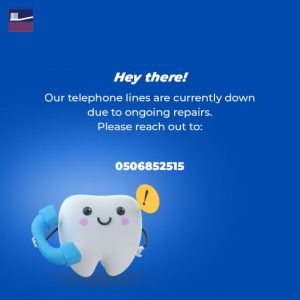
You make facial gestures like smiling, laughing, eating, and swallowing daily without giving them much thought. However, if you have temporomandibular joint dysfunction (TMJ) – these routine movements could be painful.
But what exactly is the cause and symptoms of TMD? Let’s find out everything you need to know about this disease and how you can manage them.
What you need to know about Jaw Pain, TMJ, and TMD
Your temporomandibular joints, which are located where your skull and lower jawbone converge, are the muscles and ligaments that move your mouth are connected. Temporomandibular disorders, sometimes known as TMDs, can hurt your jaw joint and the muscles that control your jaw movement.
It might be complicated to pinpoint the exact reason for TMJ dysfunction in an individual. A combination of variables, such as heredity, arthritis, or a jaw injury, could be causing your pain. Although many people routinely clench or grind their teeth without developing TMJ issues, some people with jaw pain tend to do so (teeth clenching).
Most of the time, self-managed care or nonsurgical therapies can take pain and suffering because of TMJ issues. Although it is only used as a last resort when all other options have failed, certain TMJ disease sufferers may benefit from surgical therapy.
What are the symptoms of TMJ-TMD?
Some warning signs and symptoms of TMJ issues include:
- Having jaw discomfort or tenderness
- Temporomandibular joint discomfort, either in one or both joints
- Throbbing pain behind and in your ear
- Chewing is painful or unpleasant
- Painful facial discomfort
- Joint locking, making it challenging to open or close your lips
When you open your mouth or chew, TMJ issues can produce a clicking noise or grinding sensation. However, you generally don’t need therapy for a TMJ condition if your jaw clicking is not accompanied by pain or a restriction in your range of motion.
How to manage your TMJ issues?
TMJ pain management without surgery is a solution in minor situations. The following methods can help you manage symptoms and reduce TMJ pain without surgical intervention:
- Keep your jaw in its resting posture.
To help with TMJ issues, lessen wide facial motions including munching, laughing, singing, and shouting.
- Have a restful night’s sleep
Numerous facets of health depend on sleep. To relieve TMJ stiffness, lie on your back with pillows supporting your neck. Avoid sleeping on your tummy, and don’t put your hand on your jaw if you’re on sleeping on your side.
- Ensure proper posture.
Sitting in an unpleasant position for extended periods might trigger jaw pain. Select a chair with backrests and take regular breaks to enhance your posture while working. When driving, adjust your seat as upright as possible; when engaging in pastimes like reading or watching TV, pick a space that enables you to sit up straight and add a pad behind your back for support.
Experts advise performing the following exercise to improve your posture: raise your chest bone, pull your shoulders back straight, and softly pinch your neck and shoulders.
- Perform jaw exercises
Joint mobility can be improved with jaw exercises. Three jaw exercises can be combined to ease discomfort, such as the following:
- Stretching techniques
- Exercising your muscles
- Relaxing activities
- Avoid specific behaviors and food products.
You may forcibly expand your mouth or move your jaw during certain activities and food products. So avoid the following at all costs:
- Groaning or shouting
- Hard or crunch foods
- Taking substantial sips of food
- Foods that demand a lot of chewing
- Gum chewing
- Minimize or avoid mouth habits
Observe your negative habits. A couple of your habits could be the source of your TMD pain. These practices include:
- Nail biting
- Chewing lips and cheeks
- Teeth Clenching
- Teeth Grinding
- Tongue pressing against teeth as you clench your jaw
Consult a physician if your jaw continues to ache or feel stiff, or if you have difficulties opening or shutting it completely. Various causes and solutions for your condition could be examined by your dentist or TMJ experts.





